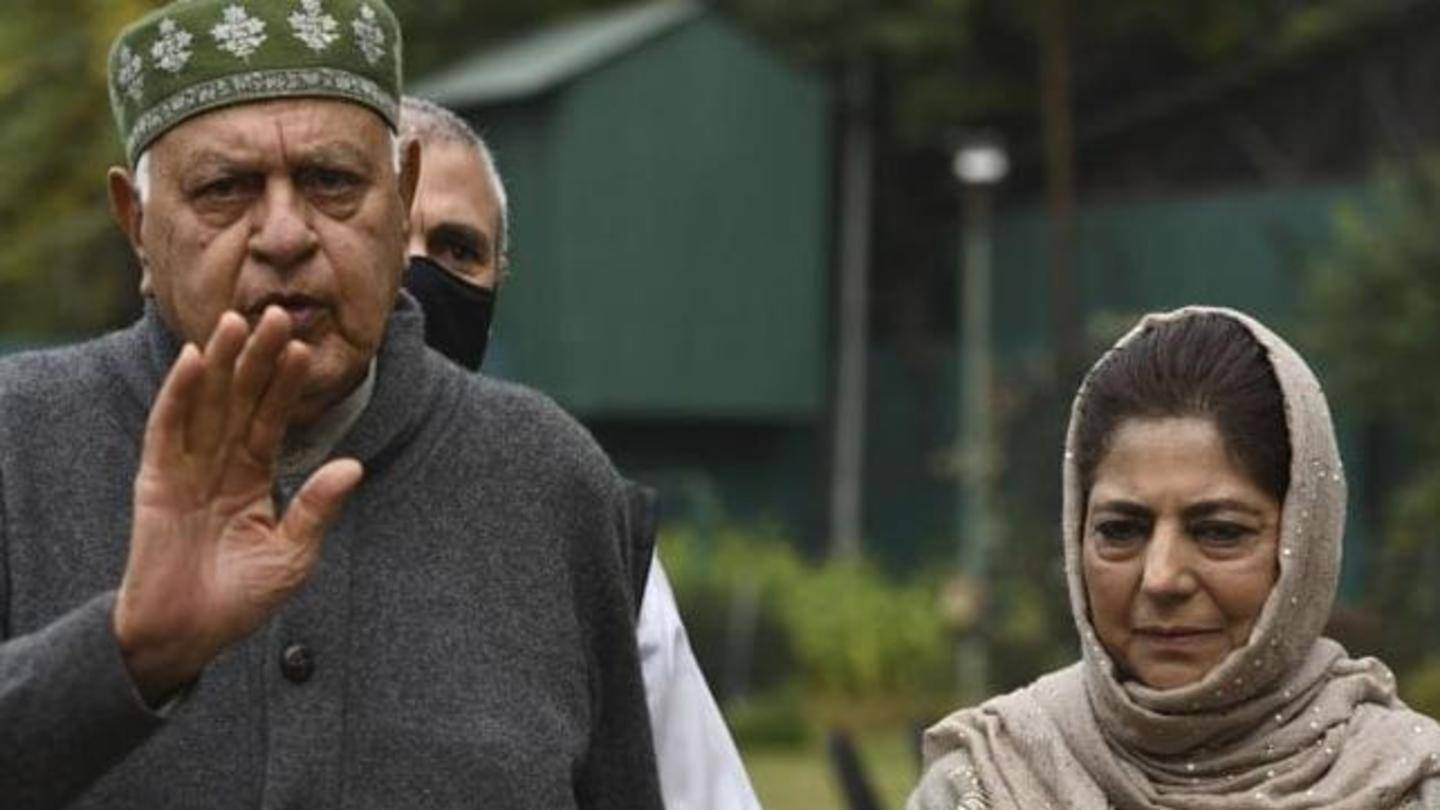
J&K DDC elections: Gupkar Alliance wins big; BJP gains
What's the story
Although the final results of the District Development Council (DDC) elections in Jammu and Kashmir have not been declared yet, the People's Alliance for Gupkar Declaration (PAGD) has won big.
However, the Bharatiya Janata Party has emerged as the single-largest party.
The elections, conducted across 20 districts, are the first local polls since J&K lost its special status last year.
Results
Gupkar Alliance bagged 110 out of 280 seats
The elections were held across 280 seats, 14 in each of the 20 districts.
Out of 20 districts, the seven-party Gupkar Alliance has won in 13, bagging 110 seats.
Among the alliance partners, the National Conference (NC) won 67 seats, Peoples Democratic Party (PDP) won 27, People's Conference (PC) won eight, Jammu and Kashmir People's Movement (JKPM) won three, and the CPI(M) took five.
Results
BJP wins 74 seats; single-largest party
The BJP has emerged as the single-largest party. It secured 74 seats, winning in six districts.
While the Gupkar Alliance won big in Kashmir, the BJP took 71 seats in Jammu.
The saffron party also made inroads in Kashmir, winning one seat each in Srinagar, Bandipora, and Pulwama.
Thus far, results have only been declared for 276 seats. Independents have won 49 seats.
Information
NC, PDP claim their leaders were detained before results
The National Conference and PDP alleged that many of their leaders were detained before the results. Meanwhile, the BJP celebrated its three wins in Kashmir, calling it a "wave of change" in the Valley.
Alliance
What is the Gupkar Alliance?
The PAGD is a grouping of seven political parties in J&K led by NC chief Farooq Abdullah, a former Chief Minister.
The alliance includes popular political figures including former CMs Omar Abdullah and Mehbooba Mufti. It is aimed at the restoration of J&K's special status.
The Congress was a signatory to the Gupkar Declaration, but contested DDC polls separately, winning 26 seats.
DDC polls
How are the elections significant?
J&K currently does not have an elected assembly, which makes the DDCs the only body with both rural and urban representation.
With the DDCs being the only body linking people and the government, each council chairperson will enjoy the status of a junior minister.
The DDCs, which replace the District Planning and Development Boards, are meant to drive development through federal funding.